The HTC 10 Review
by Joshua Ho on September 19, 2016 8:00 AM ESTCamera Architecture and UX
The camera of the HTC 10 is one of the most important aspects to examine. While the HTC One M7 was a big leap forward for HTC, in the years since we’ve seen a general stagnation on HTC’s part. The One M8 was effectively identical to the One M7 for the rear camera other than the addition of a depth-sensing camera and the deletion of OIS. The One M9 shipped with a camera that was a disappointment at best due to a lack of OIS and extremely poor image processing algorithms. The lack fast auto-focus mechanisms like phase-detect AF and rangefinder-guided contrast AF also significantly impacted the user experience, as did the long focus and capture times. While there were a lot of problems with the One M9, the poor camera was one major dealbreaker. Even if RAW output could be respectable, it’s impossible to recommend a phone when you have to boot up a laptop to process an image any time you want something to share on social media.
While HTC could continue to ship mediocre cameras, it’s probably not a far leap to say that doing so would make them irrelevant in the high-end smartphone market when devices like the Nexus 5X, OnePlus 3, and iPhone SE are all shipping pretty great cameras for less than 400 USD. To figure out whether the HTC 10’s camera is competitive, we can start by looking at the basic specs of the camera before diving deeper.
| HTC Flagship Cameras | ||||
| HTC One M9 | HTC 10 | |||
| Front Camera | 4MP | 5.0MP | ||
| Front Camera - Sensor | Omnivision OV4688 (2 µm, 1/3") |
Samsung S5K4E6 (1.34 µm, 1/4") |
||
| Front Camera - Focal Length | 3.82mm (26.8mm eff) | 2.34mm (23mm eff) | ||
| Front Camera - Max Aperture | F/2.0 | F/1.8 | ||
| Rear Camera | 20MP | 12MP | ||
| Rear Camera - Sensor | Toshiba T4KA7 (1.12 µm, 1/2.4") |
Sony IMX377 (1.55 µm, 1/2.3") |
||
| Rear Camera - Focal Length | 4.73mm (27.8mm eff) | 4.58mm (26mm eff) | ||
| Rear Camera - Max Aperture | F/2.2 | F/1.8 | ||
At a high level, it seems that HTC has learned a lot from their previous cameras in a lot of ways by integrating a high-quality sensor, as well as a laser auto-focus module. The IMX377 isn’t necessarily anything new, but HTC’s use of a wide aperture distinguishes it from other devices using the same sensor. Really, the only notable point of concern here is the 26mm equivalent focal length which makes for a very wide field of view. While this may sound like a good thing to have, generally speaking it seems that reducing focal length is generally done to reduce the thickness of the optics stack. Combined with the wide aperture I suspect that this may affect overall performance. The HTC 10 already has a noticeable camera hump so I suspect that increasing this hump to improve optical performance wouldn’t be that noticeable.
Overall, the architecture of the camera on the HTC 10 isn’t necessarily exotic, but it’s starting at a good place. The large sensor, pixel size, and wide aperture along with OIS should mean good things for low light sensitivity and laser AF should make for fast focusing if done right. The improved ISP in the Snapdragon 820 should also help with image processing quality, but this is conditional on whether HTC has done their part. I should also mention that the front-facing camera is automatically one of the best I’ve ever seen on the basis of having an actual VCM and OIS which allows for the camera to actually focus on a subject rather than focusing at infinity.
Before we get into image quality though I want to discuss the user experience that comes with using the camera on the HTC 10. The easiest place to start is the camera application itself, which launches quickly. However, the gesture to launch the camera application is swiping downwards twice on the display. This gesture works, but it’s honestly fairly slow and I suspect that a double press of a volume button with the screen off would be a much faster gesture. Other than this issue though, the camera app launches fast enough that the latency doesn’t stick out as a sore point.
Getting into the camera app itself, the UI has been significantly updated relative to previous devices. While the UI is going to be immediately familiar and easy to use for pretty much anyone, it retains a clean look that is generally not seen in Android devices. Following with navigation conventions for Android, rather than placing an overflow button in the UI there is just a slide-out drawer for all of the settings and camera modes which is simple and clean. The only real complaint I have here is that pressing the back button will exit the camera app entirely rather than close the overflow drawer, which is somewhat unnatural.
The extra camera modes are also generally implemented sensibly, but from a UX perspective the Zoe camera mode is not the best as Google’s photo gallery application doesn’t integrate the 720p video and photo into a single “photo” as seen in previous implementations of Zoe with HTC Gallery, and similar features on other devices. Pro mode continues to be included and while the ability to change all sliders all at once is kind of interesting to have, practically speaking it really just makes it easy to clutter the screen with a bunch of sliders. I’m not totally sold on the design of the Pro camera mode, but this is mostly a minor complaint so I wouldn’t put too much emphasis here.
Other than some minor usability issues I honestly didn’t find a lot wrong with the design of the camera application. HTC isn’t doing anything that sticks out as exceptionally poor here, and there is a noticeable level of restraint as the camera application isn’t overflowing with random camera features that you probably won’t use. The camera app works well for the most part, and UX niggles like the over-sensitive laser AF block detection have been resolved. There is always room to improve with things like only presenting one slider at a time in pro mode and setting the back button to close the settings drawer instead of closing the camera app, but these are things that would probably take a few days of implementation and testing at most.
The final point in the user experience I want to talk about before we get into discussions of video and image quality is the speed of the HTC 10’s camera with regard to capture and focus latency. It’s probably not entirely unfair to say that poor latency in this regard can ruin the experience because poor auto-focus and capture latency make it easy to miss the moment you want to capture. While our testing is inevitably going to be a phone sitting perfectly still in a tripod with a fairly obvious focus target the reality of real-world use is going to be taking out a phone, opening the app, and waiting maybe half a second for the device to focus before tapping the capture button and putting the phone away. In order to try and include this as a part of the evaluation process we test how quickly the device can focus and capture on our standard ISO chart in strong lighting conditions at base ISO.
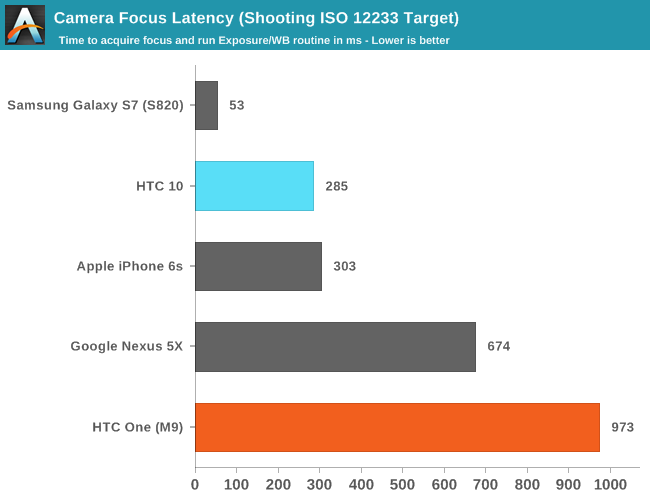
Looking at the focus test HTC has improved dramatically since the One M9 in daytime as the time of flight sensor allows for some estimation of where to focus before contrast detection does the fine adjustment. While it is faster than the iPhone 6s in daytime scenarios what should be noted here is that HTC’s contrast AF algorithm seems to be honestly rather poor in low light even with laser AF helping to guide the contrast AF search. The speed isn’t really the problem, but I’ve just seen it miss time and time again in low light scenarios and this is a major disadvantage relative to the Galaxy S7, iPhone 6s, and LG G5. While it’s probably no surprise that the Galaxy S7 is just better by miles due to the 12MP of phase detection pixels, the iPhone 6s and LG G5 shouldn’t be clearly superior to the HTC 10 here.
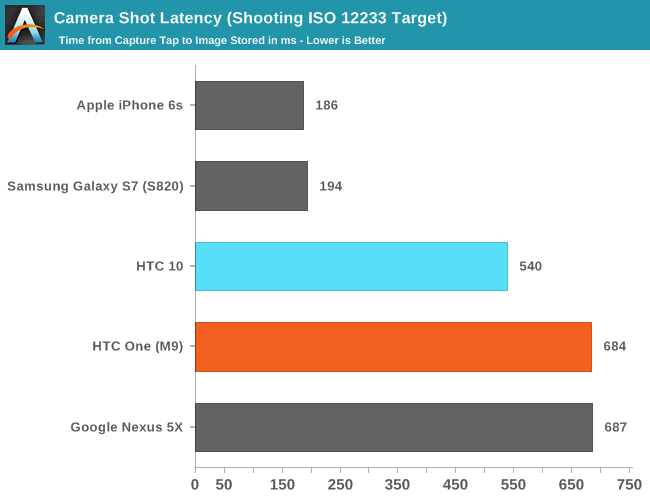
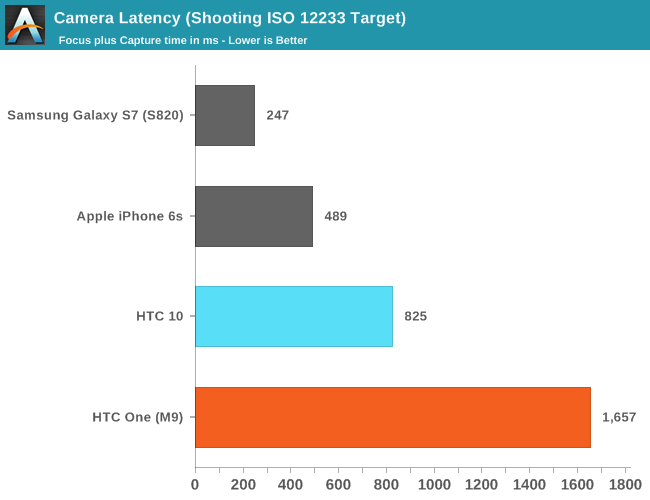
In capture latency the HTC 10 is appreciably faster than the One M9 to the extent that it feels about as fast as the One M8 but it’s still not really that quick. It might be appealing to point the blame at the eMMC used but the HTC 10 has highly variable capture latency even in daytime scenarios. While profiling will give the data that engineering needs to actually get to the bottom of this, I suspect that HDR processing is the bigger bottleneck here as capture latency tends to be significantly reduced if you disable HDR.
Overall, the HTC 10 has a decent base for a camera. It’s not going to win awards for innovation, but as OEMs converge on the “ideal” camera I’m not really sure that innovation really matters anymore so much as integration and execution. In that regard, HTC is doing the best that they’ve ever done, with a large sensor in both total area and pixel size, decent resolution, a clean and intuitive camera UI, and competitive camera latency. Relative to the competition, I would say that the Galaxy S7 is clearly better on the basis of dramatically lower latency, but relative to other devices the HTC 10 puts up a respectable showing. The only area that really needs attention by the next generation would be more reliable contrast AF in low light.


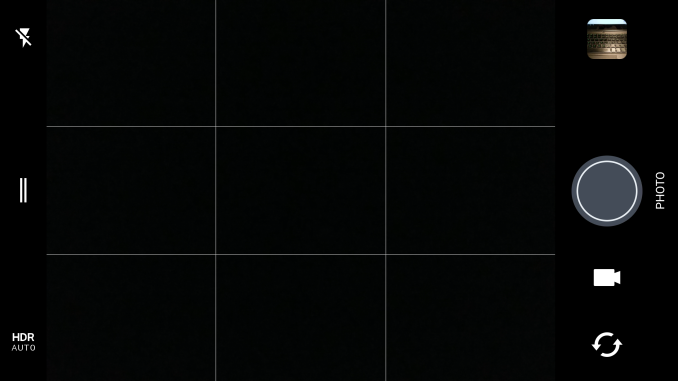
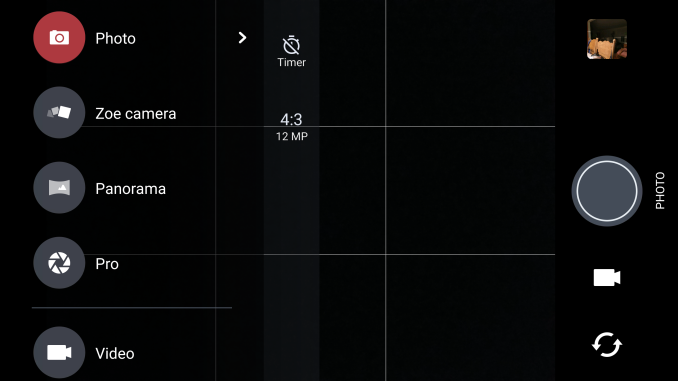
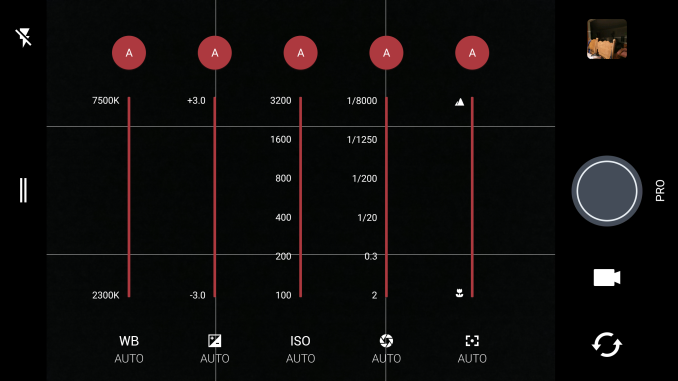
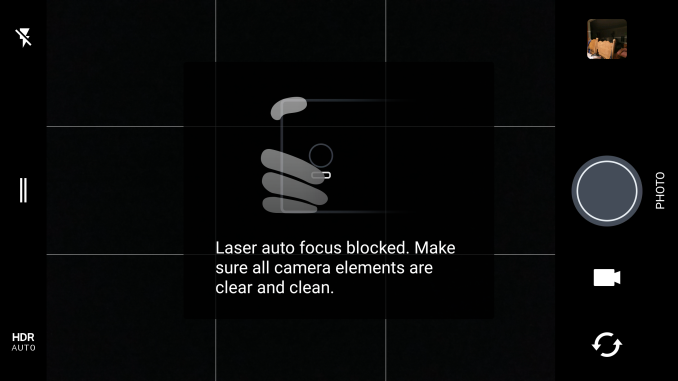








183 Comments
View All Comments
TheMysteryMan11 - Monday, September 19, 2016 - link
Hate to be that person, but HTC 10 is dead. People have forgotten about that phone and moved on. Sales have tanked and nobody really gives a damn about this phone at this point.TheMysteryMan11 - Monday, September 19, 2016 - link
And yes, I know I am generalising here.close - Monday, September 19, 2016 - link
So what you mean is you don't care about this review. Cool. I think everyone got it from this first comment.Now it makes me wonder why you feel the need to defend your opinion about your personal preferences with so many comments... I'm starting to think it's because you're very insecure saying this and need to convince yourself you're right. Just be honest for a second: you actually think HTC is alive an well, that people still think about it and care about it but you are fighting this feeling and you're hoping that by repeating your "skeptic comment" you'll convince yourself.
This is the only explanation for a guy trying to convince others that he know better what they want.
And yes, I know I am generalizing here.
theduckofdeath - Monday, September 19, 2016 - link
I think it's more a complaint against this site. This review would have been relevant six months ago. Still, more relevant than this site is turning into, though. :DI really liked coming here before. I don't see much point with it any more. I mean, what the eff? The next gen HTC flagship is right around the corner, few stores have this model left in the booths and NOW Anandtech posts a review of it?
ACM.1899 - Monday, September 19, 2016 - link
i think it's not that late (compared to Apple lifecycle of 3 years); some places(countries) may have just received the phone or waited for it to become cheaper or...(assuming 5 months is a long time) : he could've analyzed the sharp panel as well as the its polarization or other issues that appear after a while (some in Xda-Forums) ; or testing or introducing a custom rom that of course is manageable through Xda.
nevertheless it was a great and in depth review, as always.
ArmedandDangerous - Thursday, September 22, 2016 - link
Here in Malaysia, the HTC10 JUST became available, and looking forward to getting one!berantle - Saturday, September 24, 2016 - link
HTC 10 was available in Malaysia since end July 2016. My unit was delivered in the 1st week of August. It's the official local unit and not a grey-market import.Prod1702 - Tuesday, September 20, 2016 - link
I 100% agree. I am not sure if having the review out months ago would of made the HTC 10 sell more but having it come out this late in the game doesn't help at all.RadiclDreamer - Tuesday, September 20, 2016 - link
Yeah, Im going to agree with MysteryMan11 here, this phone is so old even my grandma wouldnt be caught dead using it.eclectech - Wednesday, September 21, 2016 - link
I read this review on my HTC 10. Today, it's still a great phone. A great phone is a great phone, even when new phones come out.